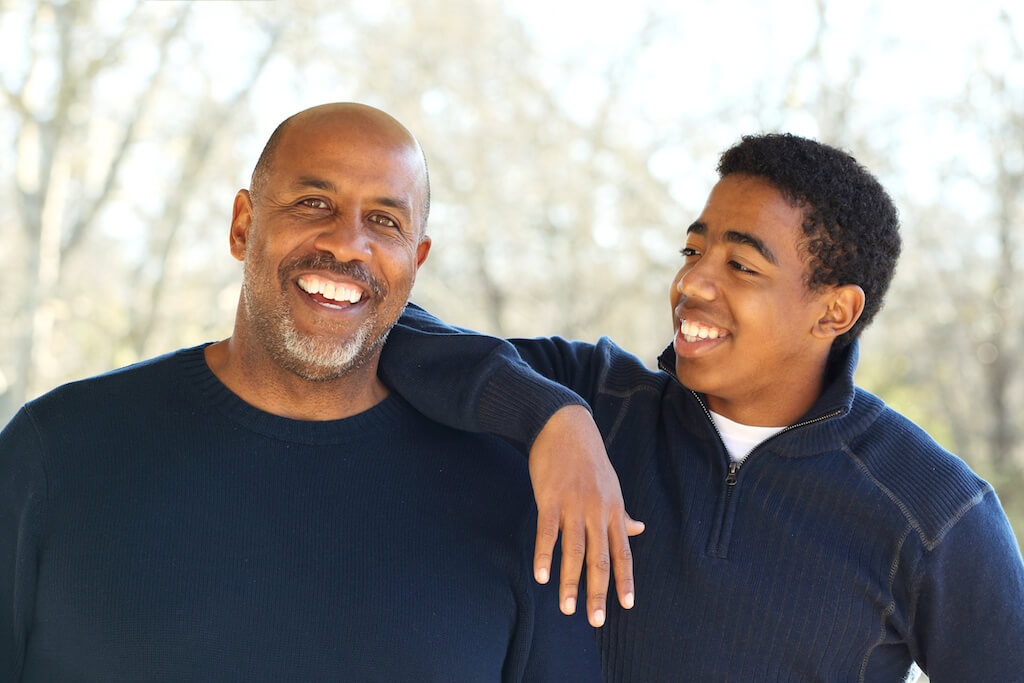
I know an amazing dad who successfully navigates conversations about sex and relationships. He stays on top of parenting issues that center on sexuality because he understands how consequential and complex these issues are. He alerted me to an article called Sexual Assault Against Boys is a Crisis by Emma Brown. This article is featured in Washington Post Magazine. If you are able to access it, I highly recommend you do. (Some of the information in the article might be triggering for those who are sexual assault survivors, so be aware.)
Sexual Assault Recognition and the #MeToo Movement
Sexual assault against girls and women has gained much attention, especially in the last 4 years. The #MeToo movement helped lift the veil of shame and secrecy, pivoting the indignity from the survivors to the perpetrators. Well, at least sometimes. (Heavy sigh.)
Sexuality educators have been pressing parents to talk about consent and respect with their boys to help break the cycle of sexual assault of females.
While I wholeheartedly believe those conversations must continue, and continue with robust urgency, this article brought to light a tremendous piece of the issue we often gloss over.
You see, boys and men are also sexually assaulted by men — and women. But because we have this idea that guys always want sex, we either ignore or laugh off these horrific situations, causing a tremendous amount of psychological harm. In fact, author Emma Brown writes, “A 2018 survey of 1,200 adults found that 1 in 3 would not quite believe a man who said he was raped by a woman, and 1 in 4 believed men enjoy being raped by a woman.” Seriously?! Let’s do our part to put a stop to this kind of thinking.
Emma Brown writes…
The author of the article brings up several points of interest to parents. I’d like to hit a few highlights. While you are reading these, I want you to consider how you will address this issue with your sons…and other children no matter their gender.
The author explains:
- “….boys suffered higher levels of physical violence, neglect and sexual abuse by adults than girls. And the more a boy was victimized, the more likely he was to do violence to others.”
When you think about this, it makes sense. If people are shunned and dismissed when sharing or reporting sexual violence, the pain and damage does not magically disappear. It will eventually need to be released. For example, some may choose to go into helping professions while others may turn to violence to cope. Some may have difficulty maintaining relationships. Some may turn to drug and alcohol. Therefore, it is imperative that those who are assaulted receive professional counseling. Seek out counselors and therapists who have special training to address the particular needs of your child, such as identity or orientation.
- “We can’t solve the problem of violence against girls and women without also addressing violence against men and boys. And we won’t succeed in teaching our sons to care for other people’s bodies until we learn to care for theirs.”
Teaching all genders that their body is their own and no one can touch it without their permission is a critical conversation parents must address from birth.
- “The default in discussions about sexual violence is to think of boys and men as perpetrators and women as victims…We’ve just built a world that makes it hard for them to admit it — and for the rest of us to acknowledge it. If we want to raise boys differently, we must start believing that they are equally capable of feeling pain and doing violence. This kind of sexual assault has nothing to do with sex.”
We absolutely must make these conversations non-gendered. Anyone can be a survivor, and anyone can be an abuser — sexual assault is often a power dynamic. Societal norms of “tough guy” or “weak girl” must be disengaged and reframed as “victimized person“.
- “It’s about power. It’s about older boys establishing their place at the top, putting younger players in their place. Boys who report assault or abuse need to hear from their parents and the people close to them that they are unconditionally loved. “The most important thing to say is, ‘I believe you, and it wasn’t your fault … and we still love you,’ ” Gartner says. And parents who want to prevent their boys from being abused, he explains, should be telling their sons all the same things they tell their daughters about their right to control access to their bodies.”
No matter what gender your child identifies as, be sure to keep the lines of communication open, always. Talk about sexual assault from a non-gendered, human lens. Any violence against another person is unacceptable.
So what can you do?
- Talk to your kids about how to seek adult assistance in the event they learn of hazing or other abuses. Parents, family members, school personnel, religious leaders…find a trusted adult they can confide in. Many trusted adults are mandated reporters, which means the burden will be taken off the child and into the adult’s hand.
- When your child joins organized sports or clubs, talk about this power dynamic and the issue of hazing. The article stated that many times the young person was not aware that their experience was sexual assault. If your child is in middle school or older, talk about it. Define assault. Give examples. The topic is scary and uncomfortable, but information can help prevent the perpetuation of this violence.
- Recognize that our kids are learning from adults. They model the behavior they see before them. Do you support political leaders who model integrity and inclusion? Do you support inclusivity? Your kids are paying attention.
Don’t stop learning about this important topic. The author, Emma Brown, wrote the book on this subject. “To Raise a Boy” can be ordered here.

